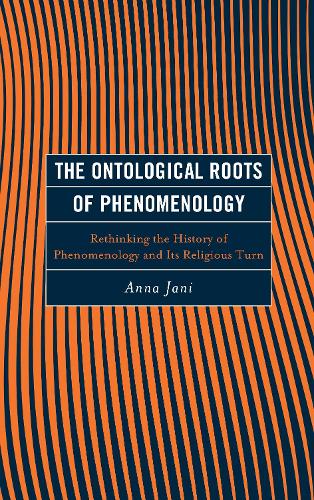
The Ontological Roots of Phenomenology: Rethinking the History of Phenomenology and Its Religious Turn
(Hardback)
Publishing Details
The Ontological Roots of Phenomenology: Rethinking the History of Phenomenology and Its Religious Turn
By (Author) Anna Varga-Jani
Bloomsbury Publishing PLC
Lexington Books
9th February 2022
United States
Classifications
Professional and Scholarly
Non Fiction
Philosophy: metaphysics and ontology
Religion and beliefs
142.7
Physical Properties
Hardback
266
Width 160mm, Height 227mm, Spine 25mm
576g
Description
In The Ontological Roots of Phenomenology: Rethinking the History of Phenomenology and Its Religious Turn, Anna Jani examines the common methodological background of phenomenology. Through attention to the phenomenon of being, the existential experience of religiosity can be phenomenologically described by the ontological difference between being and beings. Jani demonstrates that the methodological inquiries connect closely with the ontological source of phenomenology. First, she elaborates on the contributions of Hedwig Conrad-Martius, Roman Ingarden, and Edith Stein from the point of view of Heideggers influence on the early phenomenologists from Husserls students. Second, she analyzes Heideggers reinterpretation of his own earlier thinking after the turn, which is formulated in the idea of the new beginning of philosophical thinking in the Contributions to Philosophy. In the context of clarifying the difference between being and beings, her third hypothesis about Ricurs critique of Heidegger reveals an ethical level. The primordiality of the ethical dimension of the action reveals the ontological foundation of the hermeneutical-phenomenological situation.
Reviews
"Anna Janis The Ontological Roots of Phenomenology: Rethinking the History of Phenomenology and Its Religious Turn is a synthesis of traditional scholarship, contemporary philosophy of religion, and open-minded philosophical reasoning. On the complex scene of contemporary phenomenological trends, Anna Jani focuses on the ontological question before and after Edmund Husserls philosophy. She points out that phenomenologies of religionfrom Adolf Reinach through Edith Stein to Paul Ricurunderpinned various efforts to reestablish the ontological commitment of phenomenology. Hermeneutics appears in this context as the method of finding the ontological roots of phenomenology from Dilthey to Dan Zahavi. With her fresh and deep work Anna Jani continues her explorations of the varieties of religious experience and assists the reader with new motivations to continue this path of research. Her overarching understanding of the history and the problems of phenomenology and hermeneutics helps the readers understand the contemporary philosophical situation in and beyond Continental Thought."
-- Balzs M. Mezei, Corvinus University"The book begins with Paul Ricouers hermeneutics and has its conclusion in it. In the middle we find the description of the main thinkers in early phenomenology: Edmund Husserl, Edith Stein, and Hedwig Conrad-Martius on one side, and Martin Heidegger on the other side. To the latter, the author dedicates her major reflections, being her pivotal argument the question of ontology.
In this way a path is sketched that leads from the 'classic' phenomenology to hermeneutics. Along this path many important aspects of the thinkers are pinpointed; the book is useful to understand the different senses in which phenomenology can be considered."
-- Angela Ales Bello, Pontifical Lateran University"This book discusses the relationship between phenomenology and the question of being as it unfolded among the protagonists of the early phenomenological movement. By doing so three thinkers become visible as important for understanding the polarization between Husserlian and Heideggerian versions, namely Hedwig Conrad-Martius, Roman Ingarden, and Edith Stein. The upshot is a much better grasp of what the question of being in fact involves and thus also of phenomenology and of the phenomenological tradition. It is a very intelligent book bound to mark the debate in coming years."
-- Mette Lebech, Maynooth UniversityAuthor Bio
Anna Jani is research fellow and lecturer of philosophy at the Pzmny Pter Catholic University.
